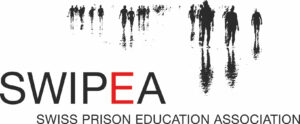SWIPEA Switzerland
After the Swiss Institute for Education in Prison (SIEP) had already been active in Swiss prisons for more than 10 years, SWIPEA was founded in spring 2019 in order to be able to become increasingly involved at European level.
SWIPEA comprises all the staff of SIEP, which is a department of the Swiss Centre of Expertise in Prison and Probation (SCEPP) in Fribourg. SWIPEA’s activities to the present day therefore correspond to those of SIEP.
SIEP provides primary and secondary school education in 29 prisons throughout Switzerland. In about 140 learning groups, 43 teachers currently teach more than 1700 participants each year.
Annual Report of SWIPEA – Swiss Prison Education Association – 2019
The Swiss Prison Education Association (SWIPEA) was founded at the end of January 2019 and recognized by the Steering Committee as an official branch of EPEA in March.
SWIPEA comprises all employees of the Swiss Institute for Education in Prison (SIEP) and is established as a legal entity for a dependent department within the Swiss Centre of Expertise in Prison and Probation (SCEPP). This means that the activities of SWIPEA correspond until now to those of the SIEP.
SIEP provides primary and secondary school education in 29 prisons throughout Switzerland. In about 140 learning groups, 43 teachers currently teach more than 1700 participants each year.
Particular attention is paid to the continuous education of teachers. Each year, 7 events are organised to deal with prison topics or pedagogical issues. Teachers are also given the opportunity to carry out an intervision in small groups – in the absence of their superiors.
Topics of this year were e.g. brain fair learning and solution focused competence in teaching. It took a long time to prepare the integration of SIEP into SCEPP by January 1st, 2020.
At the international level, Erasmus+ funded job shadowing was carried out with fellow teachers in Spain. 6 teachers from Switzerland attended classes in prisons in Granada and Almería, 7 teachers from Spain attended classes in 4 prisons in both German and French-speaking Switzerland.
Planning for identical job shadowing in Spain next year and job shadowing with colleagues from Austria has already begun.
In June, at the EPEA conference in Dublin, we presented our self-developed teaching aid German in Prison (or French respectively). The foreign participants learn the basic vocabulary and the key rules of conduct so that they can cope with everyday life in prison as autonomously as possible. As a result of the presentation in Dublin, the Ministry of Justice of North Rhine-Westphalia became interested in taking over the teaching material for the prison institutions there. It looks as if an adapted licensed version of the teaching material can be produced next year.
Finally, an exchange was agreed for next year with the Institute for Education in the Information Society (IBI) at the University of Berlin. The IBI was in charge of a project at the JVA Heidering in Berlin. The aim was to create a learning and communication platform within the prison facility to which the inmates could access via WLAN using specially configured tablets. The project is a complete success, such a platform with supervised access to the Internet and e-mail traffic is possible.
A similar objective, but at a simpler level, is the pilot project that SIEP intends to launch next year: to test the use of tablets with pre-installed learning software in class.
German version annual report
Jahresbericht 2019 des Vereins SWIPEA – Verein Bildung im Strafvollzug Schweiz
The Swiss Prison Education Association (SWIPEA) wurde Ende Januar 2019 gegründet und im März Steering Committee als offizielle Zweigorganisation der EPEA anerkannt.
Der Verein SWIPEA umfasst alle Mitarbeitenden des Fachstelle BiSt und ist im Wesentlichen eine juristische Körperschaft für eine unselbständige Abteilung innerhalb des Schweizerischen Kompetenzzentrums für Justizvollzug (SKJV). Das heisst die Aktivitäten der SWIPEA entsprechen bis dato jenen der Fachstelle BiSt.
Die Fachstelle BiSt bietet in 29 Vollzugsanstalten in der ganzen Schweiz Bildung auf der Primar- und Sekundarstufe an. In rund 140 Lerngruppen unterrichten aktuell 43 Lehrpersonen jedes Jahr über 1700 Teilnehmer.
Besonderes Augenmerk wird auf die Weiterbildung der Lehrpersonen gelegt. So werden pro Jahr 7 Anlässe organisiert, an denen Themen des Strafvollzugs oder pädagogische Fragen behandelt werden. Dabei erhalten die Lehrpersonen auch die Gelegenheit, in kleinen Gruppen -ohne ihre Vorgesetzten – eine Intervision zu machen.
Themen dieses Jahres waren z.B. Gehirn gerechtes Lernen und Lösungsfokussierte Kompetenz im Unterricht. Viel Zeit benötigte die Vorbereitung der Integration Fachstelle BiSt in das SKJV per 1. Januar 2020.
Auf internationaler Ebene wurde ein über Erasmus+ finanziertes Jobshadowing mit Lehrerkollegen in Spanien durchgeführt. 6 Lehrpersonen aus der Schweiz besuchten den Unterricht in Justizvollzugsanstalten in Granada und Almería, 7 Lehrpersonen aus Spanien besuchten den Unterricht in 4 Gefängnissen in der deutschen wie in der französischen Schweiz.
Mit den Planungen für ein identisches Jobshadowing in Spanien im nächsten Jahr und ein Jobshadowing mit den Kollegen aus Österreich wurde bereits begonnen.
Im Juni stellten wir an der EPEA-Konferenz in Dublin unser selbst entwickeltes Lehrmittel Deutsch im Strafvollzug (beziehungsweise Französisch) vor. Dabei erlernen die Teilnehmer den Grundwortschatz und die wichtigsten Verhaltensregeln, um den Alltag im Gefängnis möglichst selbständig bewältigen zu können. Als Folge der Präsentation interessierte sich das Justizministerium von Nordrhein-Westfalen für die Übernahme des Lehrmittels für die dortigen Vollzugseinrichtungen. Es ist sieht ganz danach aus, dass nächstes Jahr eine adaptierte Lizenzversion des Lehrmittels erarbeitet werden kann.
Schliesslich wurde für nächstes Jahr ein Austausch mit dem Institut für Bildung in der Informationsgesellschaft (IBI) der Universität Berlin vereinbart. Das IBI war bei einem Projekt in der JVA Heidering in Berlin federführend. Dabei ging es darum, innerhalb der Vollzugseinrichtung eine Lernplattform und Kommunikationsplattform zu schaffen, auf die die Insassen mit speziell konfigurierten Tablets über WLAN Zugang haben. Das Projekt ist ein voller Erfolg, eine solche Plattform mit kontrolliertem Zugang zum Internet und E-Mailverkehr ist möglich.
Eine ähnliche Zielsetzung, aber auf einem einfacheren Niveau, hat das Pilotprojekt, dass das SIEP nächstes Jahr starten will: im Unterricht soll die Nutzung von Tablets mit vorinstallierter Lernsoftware erprobt werden.
